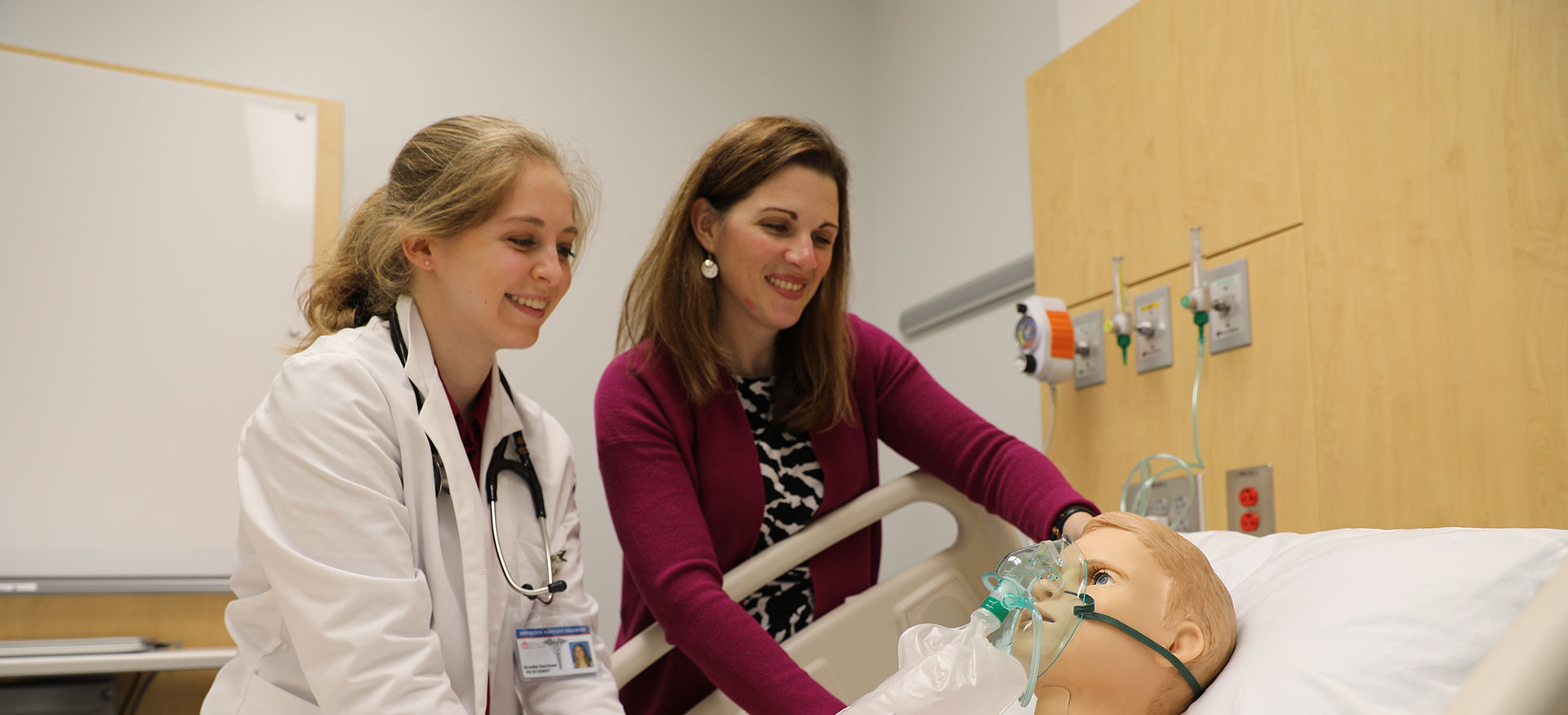Program Required Competencies
The DeSales MSPAS Program Required Competencies are as follows:
1. Knowledge for Practice
- Demonstrate critical thinking in clinical situations
- Access and interpret current and credible sources of medical information
- Understand and apply the fundamental principles of epidemiology
- Discern among acute, chronic, and emergent disease states
- Recognize normal and abnormal health states
- Formulate a differential diagnosis
- Develop and implement patient management plans
- Understand the pathophysiology of disease processes
- Distinguish and order appropriate laboratory and diagnostic tests
- Analyze laboratory and diagnostic tests
- Understand pharmacologic principles to formulate a plan for the administration of medications
- Recognize patient acuity for proper triage to the appropriate treatment setting
- Initiate management and provide supportive care for acute life-threatening emergencies
- Demonstrate knowledge about established and evolving biomedical and clinical sciences and the application of this knowledge to patient care
- Demonstrate understanding and application of technical skills and procedures
2. Interpersonal and Communication Skills
- Demonstrate culturally sensitive care
- Demonstrate effective interpersonal communication to elicit and provide information
- Accurately and adequately document medical information
- Demonstrate emotional resilience, stability, adaptability, and flexibility
- Utilize patient-centered and culturally sensitive patient education techniques
3. Person-centered Care
- Elicit a detailed, accurate, and comprehensive patient history
- Organize and present data from the history and physical examination
- Perform an appropriate physical examination
- Apply the context of the individual’s environment and cultural influences to their care
- Develop, implement, and monitor effectiveness of patient management plans
- Counsel patients to participate in their care and enable shared decision-making
4. Interprofessional Collaboration
- Communicate effectively with colleagues and other professionals
- Recognize appropriate referral patterns
- Recognize the importance of working collaboratively as a member of an inter- professional, patient-centered healthcare team
- Consistently maintain professional relationships
5. Professionalism and Ethics
- Adhere to standards of care in the role of the PA in the health care team
- Demonstrate cultural humility and responsiveness to diverse patient populations
- Show commitment to ethical principles
- Demonstrate an enthusiasm in learning and expand knowledge through self-directed learning
- Demonstrate timely attendance, appropriate dress and accomplishment of assigned tasks on time
- Demonstrate the ability to openly seek and positively respond to constructive feedback from preceptors and staff
Contact Us
Master of Science in Physician Assistant Studies (MSPAS)
Gambet Center





